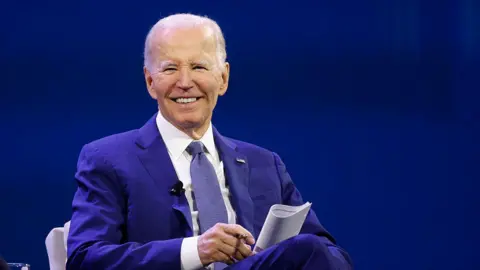A former police officer from Kentucky has been sentenced to 33 months in prison after being found guilty of breaching the civil rights of Breonna Taylor, a Black woman who was fatally shot during a flawed police raid on her home in 2020. The ruling was made by a federal jury that convicted Brett Hankison of using excessive force, which could have warranted a life sentence, leading to strong reactions from Taylor's family and advocates for justice.
Despite the mixed sentiments about the verdict, Hankison stands as the only law enforcement officer charged and convicted directly in relation to the disastrous operation. His sentence comes shortly after the Trump administration suggested that he only face one day in prison, a position that sharply contrasts with the stance taken under the Biden administration. Taylor's mother, Tamika Palmer, expressed frustration over the lesser sentence proposed by federal prosecutors while highlighting the gravity of the circumstances surrounding her daughter's death.
On the night of the raid, Taylor was asleep in her apartment with her boyfriend, Kenneth Walker, who mistakenly believed intruders were breaking in when officers forcefully entered without announcing themselves. Walker fired a lone shot, striking an officer, which prompted a barrage of return fire from the police, with Hankison discharging ten rounds into the apartment.
While none of Hankison's bullets harmed anyone inside, they endangered neighbors, leading prosecutors to categorize his actions as reckless. Outside the courthouse, protests erupted as supporters rallied, chanting Taylor's name and calling for accountability in law enforcement.
In an unusual turn, the Trump administration's Justice Department, led by new appointees, filed a sentencing recommendation that sparked outrage from Taylor's family, which underscored concern over perceived leniency extended to white officers accused of civil rights violations. The recommendation argued that Hankison's actions during the raid did not constitute a direct responsibility for Taylor's death.
This shift in the Justice Department's sentiment highlights the broader change in federal oversight of police practices since Trump took office and has raised questions about the administration's commitment to police reform in light of the systemic issues surrounding such incidents. The case marks a significant chapter in ongoing discussions about racial justice and law enforcement accountability in America, particularly in light of the broader movements ignited by Taylor's death and those like it.





















